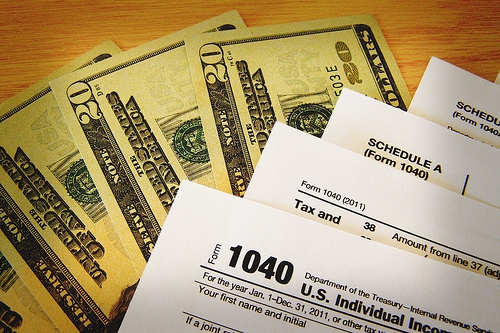
To avoid prosecution for tax evasion and other alleged crimes, the Swisspartners Investment Network AG, a Swiss-based asset management firm, and three of its wholly-owned subsidiaries (collectively, the Swisspartners Group) entered into a non-prosecution agreement (NPA) with the U.S. Attorney’s Office. Although many taxpayers have been entering the IRS Offshore Voluntary Disclosure Program (OVDP), for some taxpayers it is now too late as the Swisspartners Group has already disclosed to the U.S. Attorney’s Office the names of 110 U.S. taxpayers who may have failed to file Foreign Bank Account Reports (FBARs) and/or been engaged in tax fraud.
Although the Swisspartners Group avoided criminal prosecution for assisting U.S. taxpayers in opening and maintaining undeclared foreign bank accounts from about 2001 to 2011, it couldn’t avoid paying large sums of money for its wrongdoing. Swisspartners Group agreed to pay $4.4 million in forfeiture and restitution. Of the $4.4 million, $3.5 million represents fees that Swisspartners Group earned by assisting U.S. taxpayers in opening and maintaining undeclared accounts, and $900,000 represents the approximate amount of unpaid taxes arising from the Swisspartners Group involvement in tax evasion.
There are several factors that led to the NPA between the U.S. Attorney’s Office and Swisspartners Group: (1) beginning around May 2008, the Swisspartners Group voluntarily implemented remedial measures against offshore tax evasion; (2) without any pressure from the U.S. authorities or obligation under a criminal investigation or prosecution, the Swisspartners Group reported criminal conduct by its clients; (3) the Swisspartners Group produced 110 account files that identified U.S. taxpayers who evaded taxes; (4) the Swisspartners Group’s willingness and ongoing cooperation with the U.S. authorities to combat tax evasion; and (5) the Swisspartners Group, when investigated by outside counsel, made true representations of the misconduct that was under investigation.
The Swisspartners Group admitted, as part of the NPA, that it knew certain U.S. taxpayers maintained undeclared foreign bank accounts with the intent to evade U.S. taxes. Swisspartners Group also admitted that it helped certain U.S. taxpayers conceal beneficial ownership of undeclared assets from the IRS by, among other things: (1) creating sham foundations or other sham entities that operated as the nominal account holders; (2) using non-U.S. nationals on accounts or insurance policies; (3) facilitating the transportation of large amounts of cash into the U.S. for the benefit of U.S. taxpayers; and (4) arranging large cash deposits in Swiss financial institutions for the benefit of U.S. taxpayers.
Under the NPA, the Swisspartners Group must continue to cooperate with the U.S. tax authorities for at least three years from the date of the agreement; otherwise, the U.S. Attorney’s Office may prosecute the Swisspartners Group.
Continue Reading ›
 Tax scams have likely been around for as long as taxes have been collected. In light of the significant penalties, fines, prison sentences and other consequences that can be imposed for tax non-compliance issues, taxpayers have good reason to be apprehensive or nervous if they are contacted by someone claiming to represent the Internal Revenue Service (IRS). Thus, if you are contacted by an IRS agent, it is always prudent to verify their identity, the fact that they are employed by IRS, and request a callback number at the IRS where the agent can be reached. Furthermore, if you are contacted by an individual claiming to represent the IRS or the US government, an experienced tax professional can often more readily recognize the signs of a tax scam.
Tax scams have likely been around for as long as taxes have been collected. In light of the significant penalties, fines, prison sentences and other consequences that can be imposed for tax non-compliance issues, taxpayers have good reason to be apprehensive or nervous if they are contacted by someone claiming to represent the Internal Revenue Service (IRS). Thus, if you are contacted by an IRS agent, it is always prudent to verify their identity, the fact that they are employed by IRS, and request a callback number at the IRS where the agent can be reached. Furthermore, if you are contacted by an individual claiming to represent the IRS or the US government, an experienced tax professional can often more readily recognize the signs of a tax scam. Tax Problem Attorney Blog
Tax Problem Attorney Blog



 Individuals using
Individuals using  Sometimes understating income is just carelessness. Sometimes its
Sometimes understating income is just carelessness. Sometimes its 
 Congressman Michael Grimm faces a 20-count indictment in federal court for allegedly committing
Congressman Michael Grimm faces a 20-count indictment in federal court for allegedly committing ”
”
 Now, Peter Troost, the owner of Troost Memorials, a seller of gravestones and other cemetery markers, has pled guilty to an offshore tax evasion scheme in which he diverted income from both his business and various rental properties into a Swiss Bank Account located at UBS. According to his plea agreement, Troost diverted taxable income into his UBS account for at least 10 years, beginning in 1999. Troost admitted to intentionally failing to report both interest income and income from his business throughout his offshore tax evasion scheme. The timing of the end of Troost’s offshore arrangement (and its discovery) is unsurprising, considering the IRS’ increased scrutiny of offshore banks accounts resulting from UBS’ deferred prosecution agreement to provide information about U.S. account holders that began in 2009.
Now, Peter Troost, the owner of Troost Memorials, a seller of gravestones and other cemetery markers, has pled guilty to an offshore tax evasion scheme in which he diverted income from both his business and various rental properties into a Swiss Bank Account located at UBS. According to his plea agreement, Troost diverted taxable income into his UBS account for at least 10 years, beginning in 1999. Troost admitted to intentionally failing to report both interest income and income from his business throughout his offshore tax evasion scheme. The timing of the end of Troost’s offshore arrangement (and its discovery) is unsurprising, considering the IRS’ increased scrutiny of offshore banks accounts resulting from UBS’ deferred prosecution agreement to provide information about U.S. account holders that began in 2009.